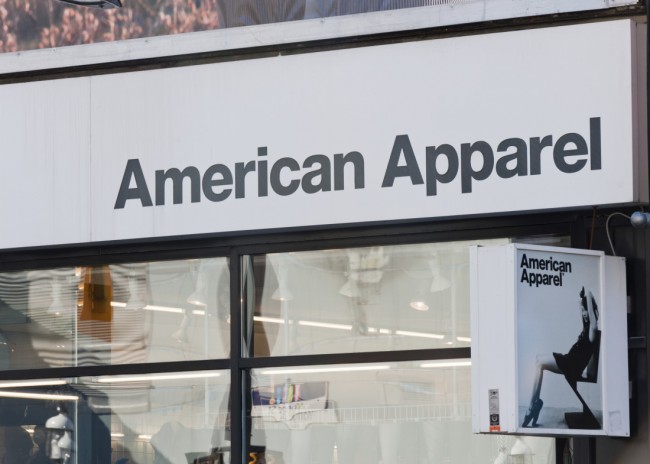Show posts for: Indemnification and Advancement
-
 Read more
Read moreThis post deals with two related protections that state laws and companies provide for directors and officers—indemnification and advancement. Corporations usually commit to indemnify officers and directors (and sometimes employees) when, because of their connection to the company, they are pulled into legal proceedings. Corporation also usually agree to advancement - paying legal fees and costs in advance of a final determination about the individual’s right to indemnification - so that officers and directors don’t have to foot the legal bills themselves while such a matter is going on.
-
 Read more
Read moreSergey Aleynikov, a former computer programmer at Goldman, Sachs & Co., has been on a legal roller coaster for the past few years. In the span of few days, that roller coaster plummeted steeply—twice.
First, on January 20, 2017, the Delaware Supreme Court affirmed a trial court decision that Aleynikov could not recover advancement and indemnification for the legal expenses he is incurring in defending himself against counterclaims brought by two Goldman Sachs entities in New Jersey federal court.
Then, on January 24, a New York appellate court reinstated a jury verdict finding Aleynikov guilty of misappropriating computer code from Goldman.
-
 Read more
Read moreThanksgiving is typically a time for gratitude, gathering with family, and acts of kindness among fellow men and women. But in one recent case, a bank used Thanksgiving to force-feed a separation agreement to its outgoing president.
The bank later claimed that the ex-officer had released his rights to benefits under a “top-hat” benefits plan, even though it was not mentioned in the separation agreement. In Buster v. Compensation Committee of the Board of Directors of Mechanics Bank, the plaintiff alleged, and the court agreed, that the bank’s interpretation of the separation agreement did not fly.
Steven Buster worked as president of Mechanics Bank between 2004 and 2012. During his tenure, Mechanics Bank had two retirement plans. The first was the Supplemental Executive Retirement Plan (SERP), a so-called “top-hat plan” because it was available only to a few, select senior employees. The accrual of benefits for the SERP was frozen in 2008. In that year, the bank adopted a separate Executive Retirement Plan (ERP).
-
 Read more
Read moreRemember 2002? That year, A Beautiful Mind won best picture, and the University of Maryland won the NCAA basketball tournament. It is also the year that Rite Aid and its former General Counsel, Franklin Brown, began litigating over Brown’s indemnification rights. They are still fighting, which brings us to Brown v. Rite Aid Corp., CA No. 11596-VCL, the latest chapter in the 14-year-long dispute.
The Delaware Chancery Court is generally a forgiving forum for an director or officer seeking to vindicate indemnification or advancement rights conferred by a Delaware company. But there are limits, and a recent decision by the Chancery Court in the Brown case concerned one such limit: a claim for indemnification must be brought within three years of final disposition of the proceeding that triggered the indemnification demand.
-
“Some But Not All”: Delaware Court Awards Advancement to Former Officer, But Only for Part of a Case
 Read more
Read moreWhen a former officer or director of a company must defend against legal claims, advancement of legal fees by the company can be critical to a successful defense. The Delaware Chancery Court frequently addresses issues related to advancement of fees for former officers and directors. For example—as we discussed in this post—that court recently resolved a claim by former Vice President Al Gore and a colleague for advancement of legal fees, ruling that they were entitled to advancement from the company that bought their employer (Current Media) and assumed Current Media’s indemnification and advancement obligations, even though they had never worked for the purchaser
-
 Read more
Read moreFor both companies and individual officers and directors, it’s critically important to know the protections that are available to corporate leadership before a company runs into trouble.
The Delaware Chancery Court’s recent decision in Hyatt v. Al Jazeera America Holdings II, LLC, presents an unusual twist on the typical advancement litigation. It highlights how proper planning can ensure the intended protections are available when they are needed.
Typically, advancement cases follow a familiar pattern: a company promises officers and directors (and sometimes employees) that in the event of legal proceedings related to their duties at work, they will be protected by advancement of legal costs and indemnification.
-
 Read more
Read moreIn our last post, we discussed the recent decision Luis v. United States, in which the Supreme Court held that innocent assets are out of the government’s reach prior to trial. Justice Elena Kagan’s short but notable dissent in Luis addressed the issue of whether the government should be able to reach a defendant’s assets at all, allegedly “tainted” or not, prior to conviction.
-
 Read more
Read moreEvery defendant is presumed innocent until proven guilty in a court of law. And the Sixth Amendment to the Constitution provides a defendant has the right to counsel of his or her own choosing. These rights are foundational to our criminal justice system.
However, prior to the Supreme Court’s decision yesterday in Luis v. United States, the government was able to undermine these basic rights. In cases involving conspiracy, healthcare fraud, and banking fraud, federal statutes allowed the government to seek a pretrial restraining order preventing defendants from using their innocently obtained assets to retain counsel.
-
 Read more
Read moreThe turn of the calendar is always a good time to reflect on what has come before and preview what lies ahead. In this post, we count down our most popular posts of 2015 about executive disputes. Later, we’ll look at what to expect in 2016.
-
 Read more
Read moreWhen a company sues an executive, one question is who will pay the legal bills. As we covered earlier this year, that’s been an issue in Dov Charney’s ongoing legal battle with his former employer, American Apparel. Specifically, after American Apparel sued Charney for violating their standstill agreement by getting involved in shareholder suits and commenting to the press, Charney sued American Apparel in Delaware for indemnification and advancement. He claimed that the suit was brought “by reason of the fact” that he had been CEO, and thus fell within the indemnification provisions in various corporate documents.
As the regulatory and business environments in which our clients operate grow increasingly complex, we identify and offer perspectives on significant legal developments affecting businesses, organizations, and individuals. Each post aims to address timely issues and trends by evaluating impactful decisions, sharing observations of key enforcement changes, or distilling best practices drawn from experience. InsightZS also features personal interest pieces about the impact of our legal work in our communities and about associate life at Zuckerman Spaeder.
Information provided on InsightZS should not be considered legal advice and expressed views are those of the authors alone. Readers should seek specific legal guidance before acting in any particular circumstance.
Contributing Editors

John J. Connolly
Partner
Email | +1 410.949.1149

Andrew N. Goldfarb
Partner
Email | +1 202.778.1822

Sara Alpert Lawson
Partner
Email | +1 410.949.1181

Nicholas M. DiCarlo
Associate
Email | +1 202.778.1835




